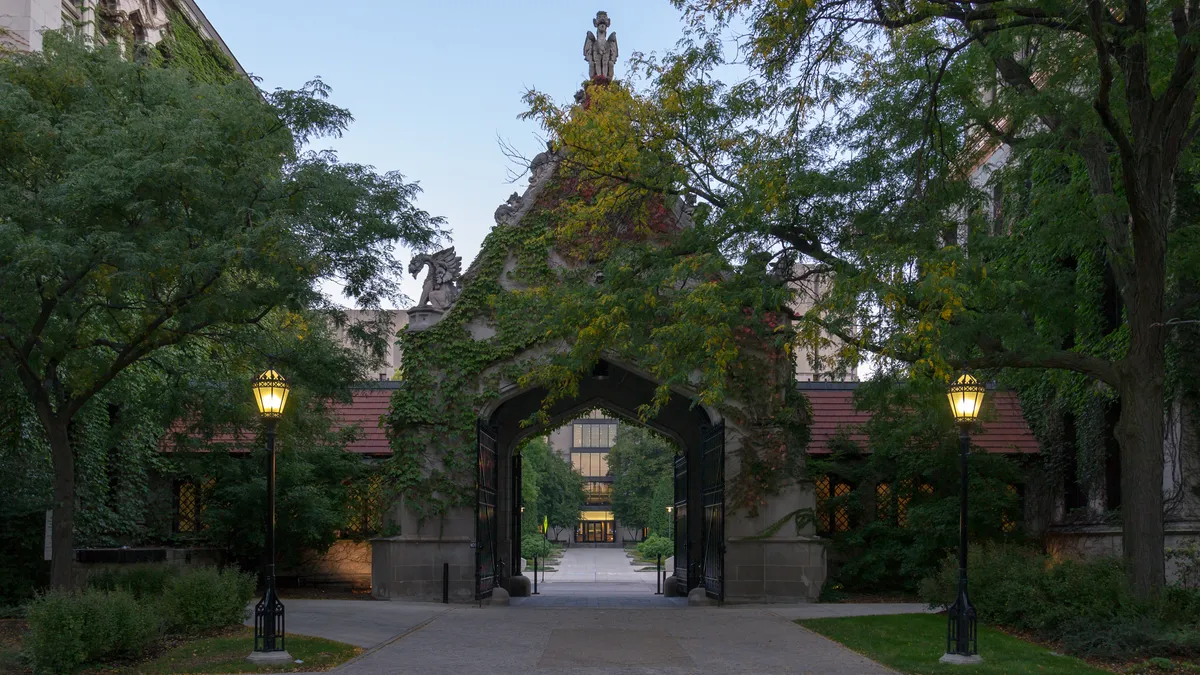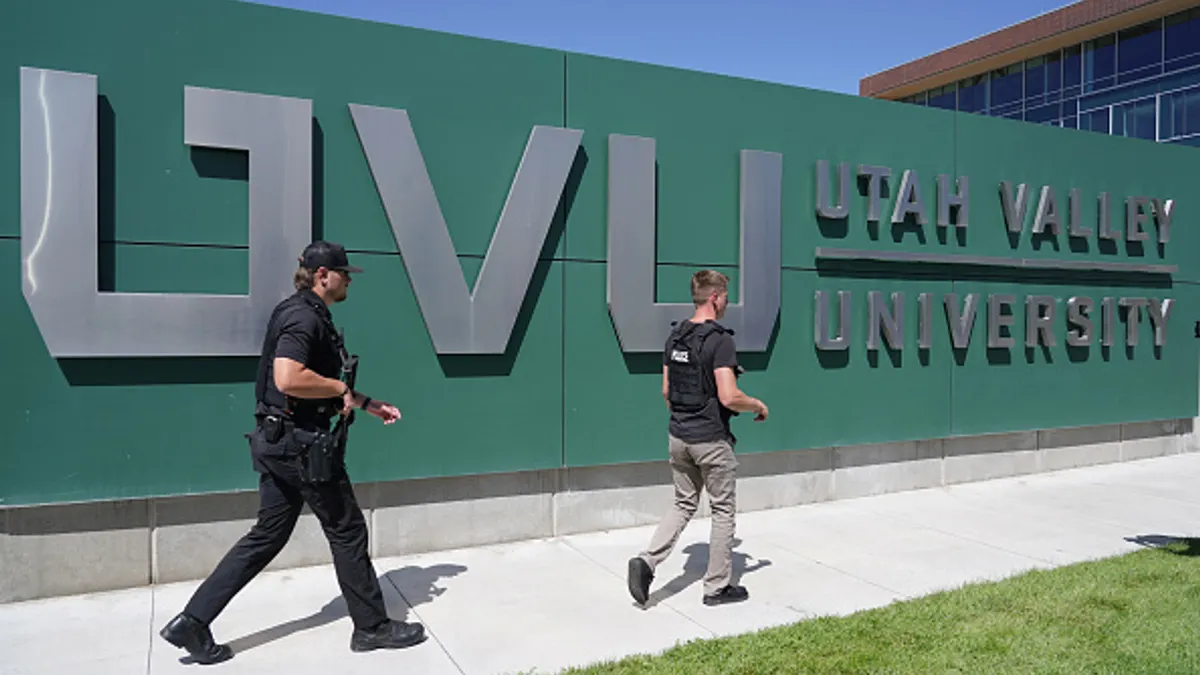When President Matthew Holland of Utah Valley University, winner of our 2016 Higher Ed Dive Awards Executive of the Year, sent us a note a few months ago asking to stop by the office, we were of course elated to welcome him to our home turf. With the whale print wallpaper, buzzing editorial room and red velvet meeting spaces, he seemed to enjoy it, as well. But what we thought was going to be a simple check-in turned into an exciting story about Holland's experiences and challenges over the last year that, suffice to say, we were pretty surprised and happy to hear about — so, we've decided to share them.
Holland was granted the award last year for his leadership qualities and taking charge at the onset of his presidency, declaring "that [his] institution will be top-tier by the end of his tenure." Holland, with his dual mission model, has been dedicated to "assess[ing] the needs of the state and its industry and say[ing] the needs of the college will focus on the needs of the state," specifically becoming a workforce development college that happens to offer bachelor’s degrees.
Below we've summarized some of his key takeaways, along with a video in which he fleshes out his journey.
How have your last 12 months been in office?
"[It's] been one of the most rewarding professional years of my life, and that's no exaggeration. Shortly after winning the award [...] I had an opportunity to apply for a Senior summer associate program at Oxford University and noted the award and that I wanted to write about some things that had happened at UVU, and it led to some interesting opportunities there," said Holland.
"It also caught the attention of a some other institutions around the world. At least in Canada, a large community college read the article [...] and invited me up to be their advisor on how to follow the UVU dual model mission."
Utah Valley University's history is rooted in a vocational past, having started out in the 1940s as an institution that primarily started out graduating skilled craftsmen for the WWII and then transitioning into a two-year, vocational school and then a technical trade institution. And in 2008, the Utah Legislature unanimously voted to make Utah Valley State College a university, a year after which Holland took over and the school began offering 58 bachelor's degrees in 2009 from 31 in 2003.
Holland taps into this past with his 'dual model mission' approach, maintaining a community college branch — building out the state's graduates in more technical, vocational fields — while at the same time offering the traditional four-year liberal arts education. This has resulted in the institution being able to keep tuition at a consistent rate and maintain enrollment at around 35,000 students.
The model caught the attention of a number of groups around the world, and Holland says he has been excited to share the mission.
What have been some of your highlights and challenges from the last year?
"The opportunity to go to Oxford was very rewarding, I had gone there to sort of reboot intellectually and academically. I've been in presidency now for 8 years and this was a chance to return to my political science and history roots," said Holland.
"I was excited to go do that, but I also said I wanted to write about the UVU dual model [...] and I thought that the folks at Oxford would find that interesting, but I mentioned this was catching national attention after I received the honor [...] and they wrote back and said they wanted to grant me the award and have you come for the summer [...] and we invite you to explore your model with us and write about that."
Holland says when he got to Oxford, he thought most of the conversation would revolve around his historical interests, but almost every conversation was on UVU and its mission, which led to his opportunity to present at British Parliament.
"I had lunch with a member of the House of Lords, I told her how surprised I was with the interest people had with this dual model mission...," said Holland, who added that she had told him this was exactly what they had been searching for as an approach to higher education following Brexit and making university education more applicable to the workforce.
"We worked to put together a panel. We had members from the House of Lords, the House of Commons, from Labor. the Conservative party, the Church of England, public intellectuals, it was just a really exciting robust thing," said Holland.
"And then after I came home I was contacted by the President of Red Deer College in Alberta, Canada who said [...] we read about your award [...] and that's exactly what we think we need to do." And since then, Holland has been working as an advisor for the school.
So, what's the magic formula for presidents being both business and campus leaders?
Holland says that he'd always considered the needs of the state, and preserving the community college role seemed natural to him, seeing the importance of keeping tuition low, offering bachelors' degrees and shorter creating pathways into technical fields.
Holland told us that happened is the institutions has kept access high to those programs, but they've also gotten better because they are in the context of a university environment. He also mentions that structured enrollment allows students, if they want and show ability, to move on from two-year paths to the four-year plan.
In terms of channeling this model into the presidency's role of being both a a traditional academic and a business executive, Holland says it's important for presidents to start envisioning themselves as having expertise in both.
"I really try to harken back to the earlier [business] training I had and really tell myself, 'I can't just afford to be an academic president or really just a fundraising president.' We've got to really think through some of these strategic issues and management issues involved. Part of it is making sure it becomes a priority in your own mental model about how you're going to be a leader," he said.
"The other key is to surround yourself by smart people who can do this [...] I had good people on my team who I made sure could complement my strengths and areas I needed more help and listen to the and empower them to bring in good counsel to me."














